Fair AI Challenge
The best way to understand fair AI is …
Train an unfair AI and try to fix it!
Get data
To train an unfair AI you need data containing sensitive features. As this is critical from a privacy perspective, use synthetic data!
You can create your own synthetic training data using {explore} (you need version 1.0.1 or higher):
library(explore)
train <- create_data_unfair(obs = 1000, seed = 10)
Now let’s describe the data:
describe(train)
# A tibble: 22 x 8
variable type na na_pct unique min mean max
<chr> <chr> <int> <dbl> <int> <dbl> <dbl> <dbl>
1 age int 0 0 80 16 55.4 95
2 gender chr 0 0 3 NA NA NA
3 eye_color chr 0 0 3 NA NA NA
4 shoe_size dbl 0 0 39 30.2 41.8 52.2
5 iq dbl 0 0 110 37 99.3 173
6 education int 0 0 101 0 50.0 100
7 income dbl 0 0 220 0 62.5 143
8 handset chr 0 0 3 NA NA NA
9 pet chr 0 0 4 NA NA NA
10 smoking dbl 0 0 2 0 0.29 1
11 name_arabic int 0 0 2 0 0.12 1
12 outfit chr 0 0 3 NA NA NA
13 glasses dbl 0 0 2 0 0.34 1
14 tatoos dbl 0 0 2 0 0.19 1
15 kids dbl 0 0 2 0 0.5 1
16 bad_debt dbl 0 0 3 0 0.24 2
17 credit_card chr 0 0 4 NA NA NA
18 left_handed dbl 0 0 2 0 0.21 1
19 skin_color chr 0 0 5 NA NA NA
20 religion chr 0 0 4 NA NA NA
21 internet_gb dbl 0 0 666 0 118. 442.
22 target int 0 0 2 0 0.37 1
In this dataset we find a lot of sensitive features (gender, skin_color, iq, income, religion, …) together with a target variable (target). Let’s think of an website offering credits, and we want to predict if a customer gets payment difficulties (target = 1)
Find patterns
We start the {explore} GUI:
explore(train)
Then selecting “target” as variable (to explore the target variable)
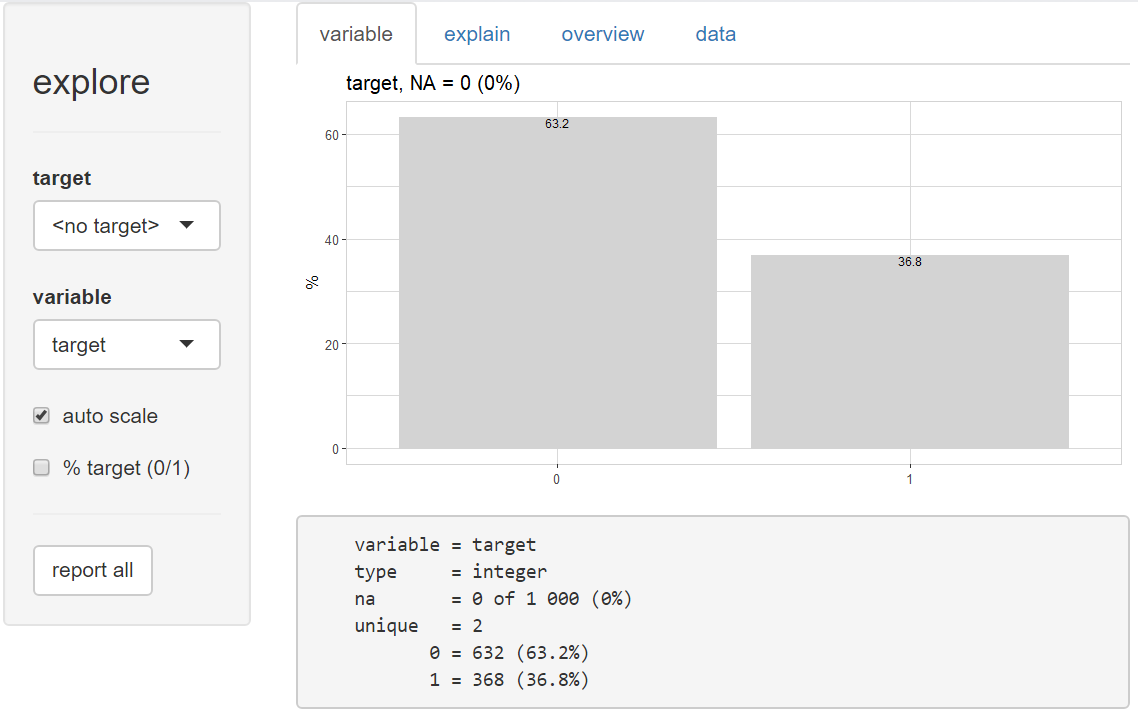
So, about 37% of all people in the dataset had payment difficulties (target = 1)
To explore the relationship between age and the target, we select variable “target” as target, and “age” as variable.
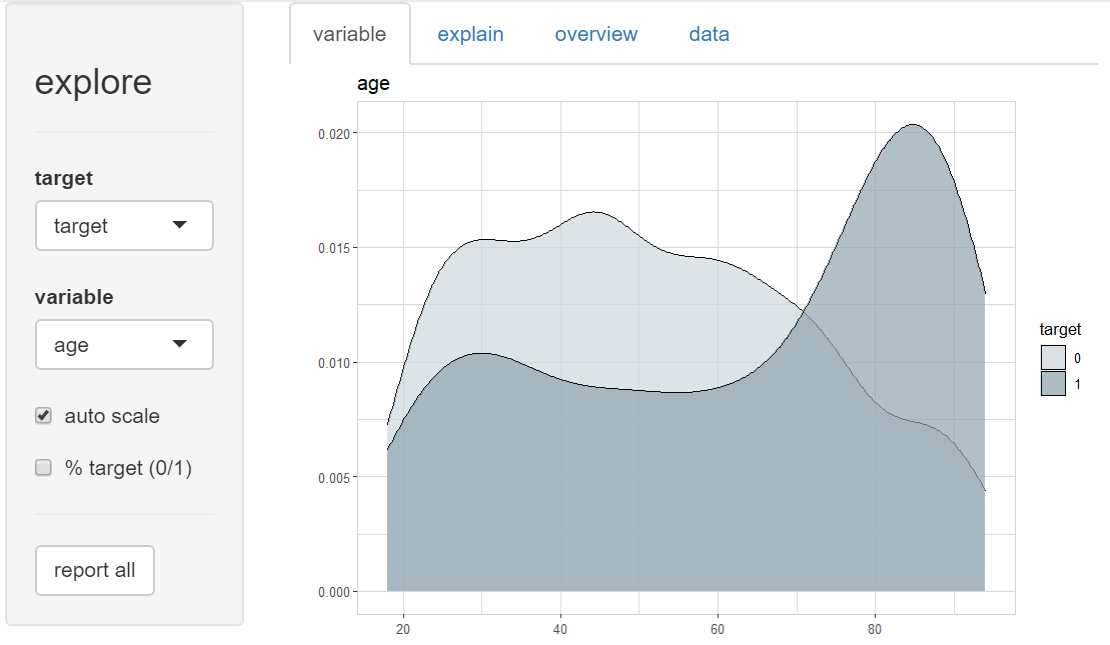
Wee see, that older people have more frequent payment difficulties. An AI model that uses this data will learn that older people are more risky and decide frequently against older people. Is this fair? Probably yes, if there is a real reason behind this pattern. But probably no, because descisions bases on age may simply discriminate older people.
And there are a lot of other sensitive variables in the dataset!
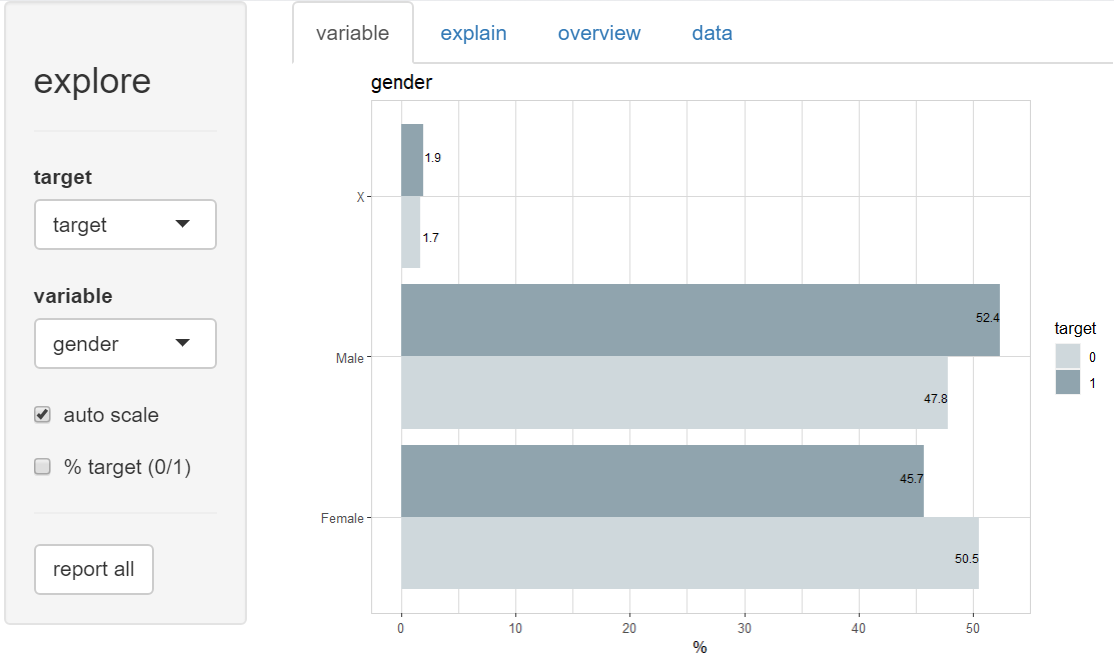
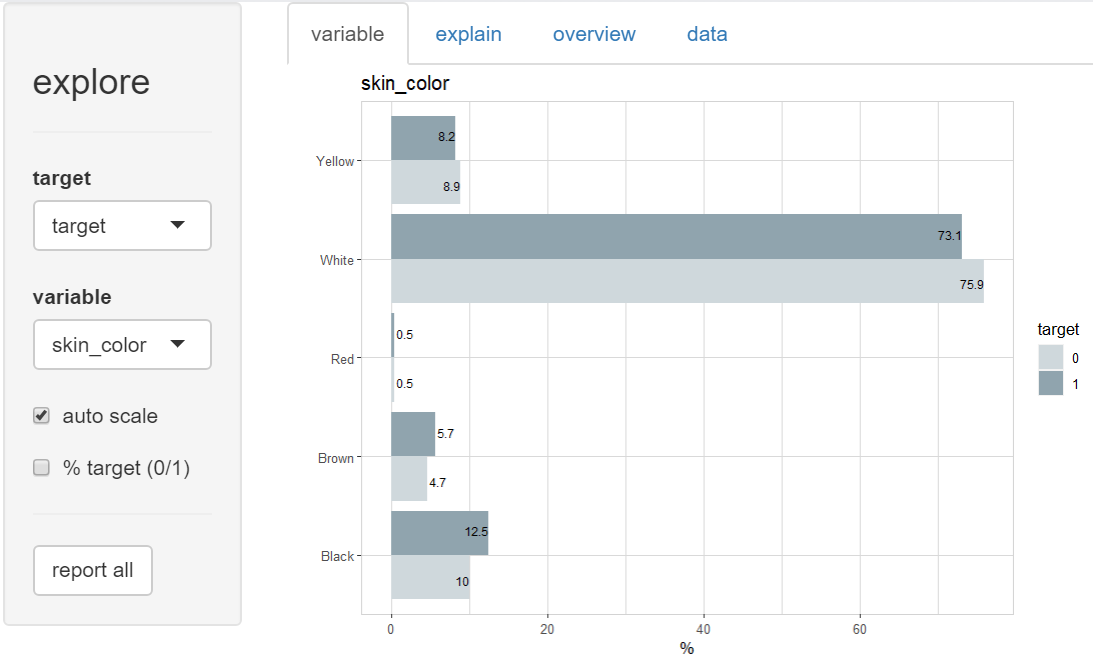
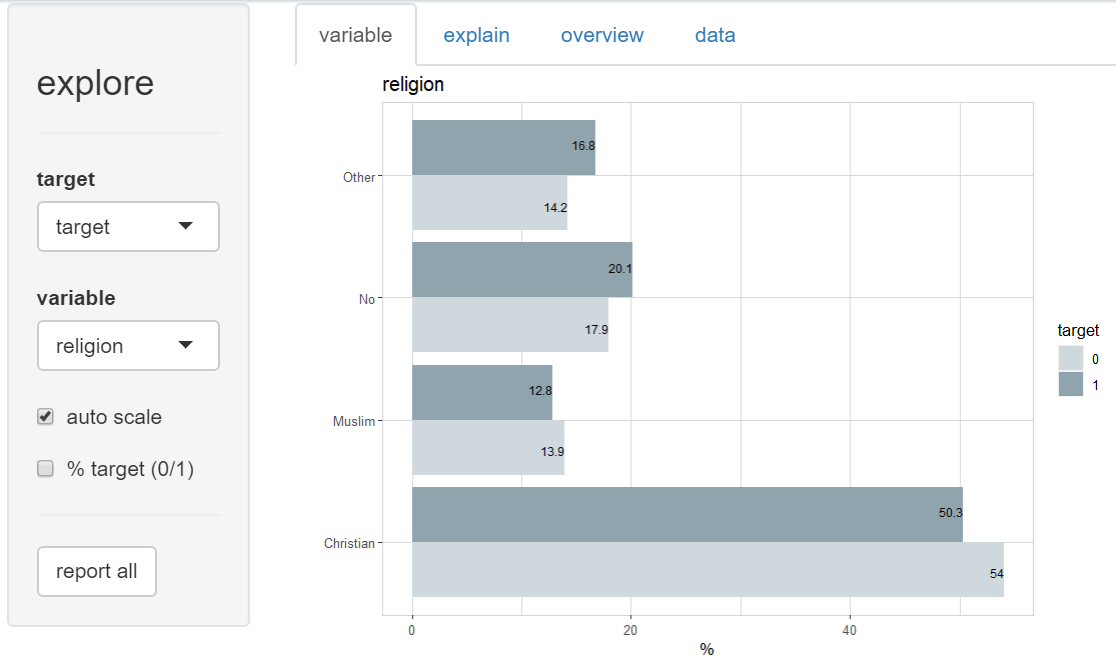
Which of these patterns will an AI model “pick up” during training? And are these patterns causal effects?
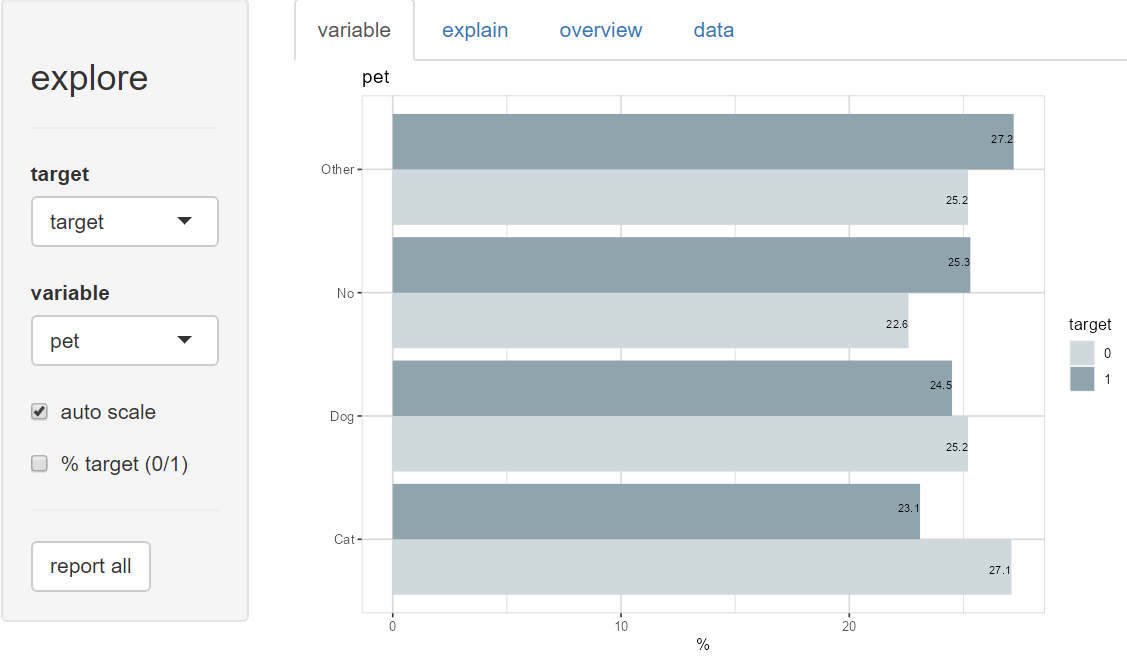
Should we really believe, that cats reduce the risk of payment difficulties?
AI Model
We train a simple AI Model by clicking on tab “explain”. A decision tree is generated.
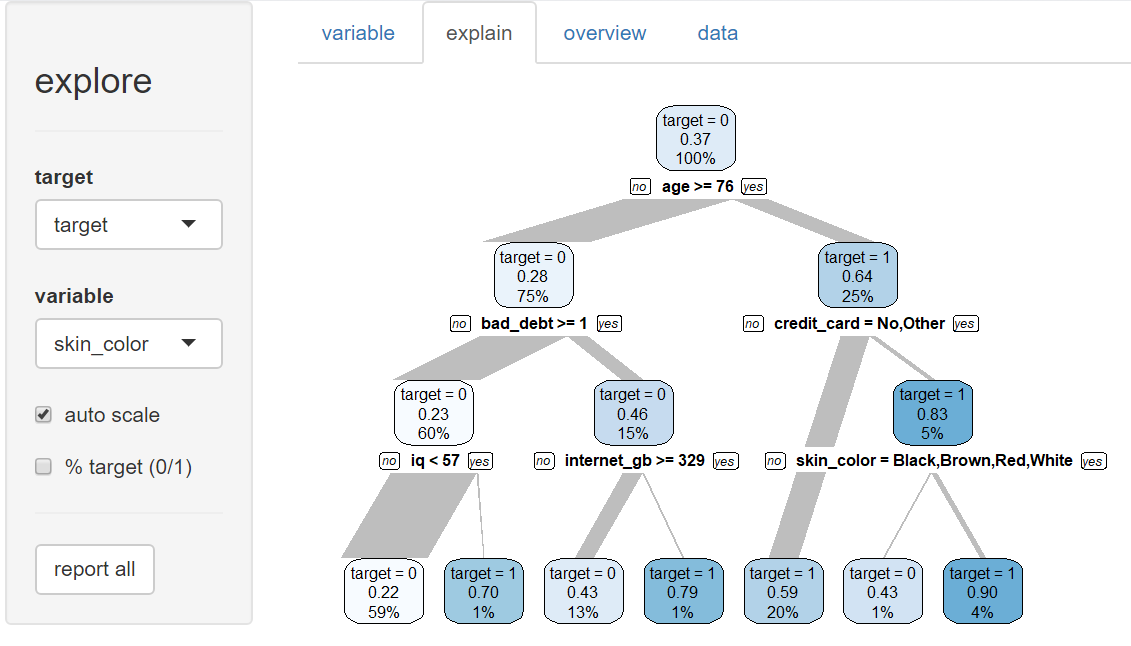
So this AI model would base it’s decision on age, bad_debt and credit_card, which seems to be reasonable. But other variables are used too like internet_gb (internet usage), iq (intelligence) and skin_color.
Did we just create a discriminating and racist AI?
Your turn!
- Which of these patterns have predictive power? (and which are just random noise?)
- How to check if the AI is unfair?
- How would a true fair AI look like?
Try to find out!